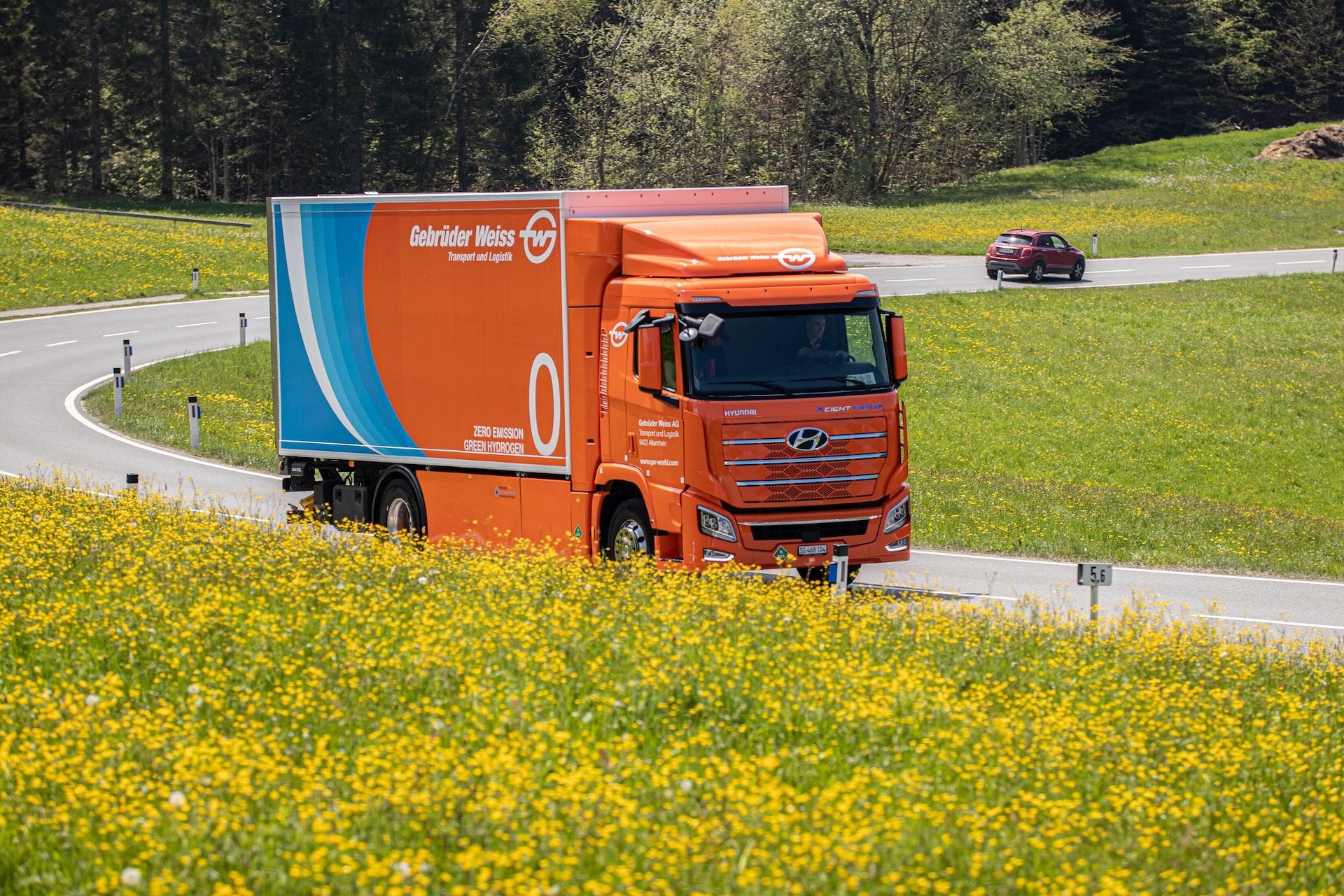Coffee manufacturer Atinkana is taking active steps to reduce its carbon footprint. In pursuit of a sustainable operation, the company has implemented an eco-friendly transportation strategy for shipping its coffee beans from Colombia to Europe. It involves using sailing ships to transport the beans and a hydrogen-powered truck by Gebrüder Weiss for the final delivery to Switzerland.
Atinkana’s commitment to sustainability goes beyond transportation. The company is dedicated to restoring Colombia’s virgin forest and improving soil fertility. Through its agricultural operations in Colombia’s Sierra Nevada region, which includes coffee, cocoa, and fruit cultivation, Atinkana is financing reforestation efforts and minimizing emissions. In fact, for every kilogram of coffee sold, the company plants two trees in Colombia.
The transportation chain utilized by Atinkana involves sailing ships to transport the coffee beans across the Atlantic to Amsterdam. From there, the beans are delivered by truck to Antwerp, then transported by rail to Basel. Finally, Gebrüder Weiss’s hydrogen truck completes the journey, delivering the beans to the roasting plant in Switzerland. This collaboration between Atinkana, Fairtransport, and Gebrüder Weiss enables 98% sustainable transportation from Colombia to Switzerland.
The sailing ships take approximately ten weeks to ship the coffee to Europe, with an annual delivery of 14 tons of coffee to Switzerland. Atinkana also supports higher-than-average wages for coffee farmers. For every kilogram of coffee sold, $8 remains in Colombia, with $5 going to the farmers and $3 allocated for reforestation efforts, accounting for around 22% of the revenue.
Gebrüder Weiss, the provider of the hydrogen truck, commends Atinkana’s sustainable efforts. They have been using their hydrogen truck in Switzerland for over two years and plan to introduce three more hydrogen trucks in Germany by 2024.
In conclusion, Atinkana’s dedication to eco-friendliness extends beyond coffee production. With a comprehensive approach that includes reforestation, fair wages, and sustainable transport, the company is setting new standards for the coffee industry. They demonstrate that international trade can be both profitable and sustainable.
Hydrogen Embraced as Transport for Eco-Friendly Colombian Coffee
Colombia, renowned for its lush coffee plantations and world-class coffee production, is taking a step towards a more sustainable future. In a groundbreaking initiative, the use of hydrogen as a transport option is being embraced, allowing for eco-friendly transportation of Colombian coffee.
Transportation has long been a major concern for the coffee industry, with the need to deliver fresh coffee beans quickly and efficiently to international markets. However, conventional modes of transport, such as trucks and airplanes, are not the most environmentally friendly options. The use of fossil fuels releases harmful greenhouse gases, contributing to global warming and climate change.
Recognizing this challenge, Colombia is adopting greener alternatives for the transport of its coffee. Hydrogen, a clean and sustainable energy source, has emerged as a promising solution.
Hydrogen fuel cell vehicles are at the forefront of this transformation. These vehicles use hydrogen to produce electricity, emitting only water vapor as a byproduct. Unlike conventional vehicles, which depend on fossil fuels, hydrogen-powered vehicles offer a carbon-neutral mode of transportation. This makes them an excellent choice for delivering Colombian coffee beans to global markets, without compromising the environment.
The Colombian coffee industry has realized the potential of hydrogen-powered vehicles and has begun implementing pilot projects. In partnership with local hydrogen technology companies, coffee producers are testing the feasibility and effectiveness of hydrogen transport.
One such initiative involves a collaboration between a major Colombian coffee cooperative and a hydrogen fuel cell vehicle manufacturer. The cooperative has committed to converting a portion of its existing delivery fleet to hydrogen-powered vehicles. This will allow them to transport their coffee beans from remote plantations to production centers and ports in an eco-friendly manner.
The benefits of adopting hydrogen as a transport option extend beyond environmental concerns. Hydrogen-powered vehicles offer numerous advantages over conventional vehicles. They have a longer range and faster refueling times, ensuring efficient and timely delivery of coffee beans to consumers.
Furthermore, hydrogen fuel cells can play a significant role in the larger sustainable energy transition. Excess hydrogen produced during transportation can be stored and used to generate clean electricity, reducing reliance on fossil fuels in other sectors.
Colombia’s embrace of hydrogen transport for coffee delivery sets a progressive example for other industries and countries. It showcases the viability of hydrogen as an eco-friendly alternative in the transportation sector, driving the transition towards a greener future.
However, challenges still exist in achieving widespread adoption of hydrogen-powered vehicles. Infrastructure development, such as refueling stations and hydrogen production facilities, needs to be expanded. Additionally, cost considerations and technical advancements are essential for making hydrogen transport more accessible and affordable.
Nevertheless, Colombia’s recognition of the potential of hydrogen in coffee transport is a significant step forward. It demonstrates the commitment of the country’s coffee industry towards sustainability and environmental responsibility. By prioritizing eco-friendly transportation, Colombia aims to preserve its reputation as a leading producer of high-quality coffee while safeguarding the planet.
As the world continues to seek innovative solutions to combat climate change, the integration of hydrogen as a transport option in the Colombian coffee industry serves as an inspiring example. It shows that embracing sustainable practices is not only possible but also economically viable, offering benefits for our planet and future generations.

